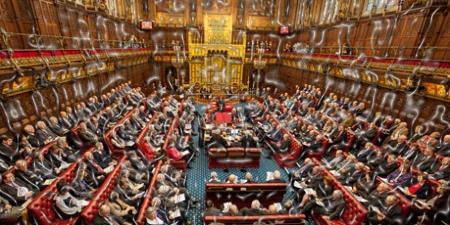British involvement in any military action against Syria has been ruled out after the government lost the vote in Parliament, with a number of the MPs of the Lib-Con coalition in government joining forces with the Labour party. Ed Miliband, the Labour leader, also demanded an assurance that the royal prerogative (the right of the executive to bypass Parliament to declare war) would not be used. Cameron responded: “I can give that assurance. Let me say, the House has not voted for either motion tonight. I strongly believe in the need for a tough response to the use of chemical weapons, but I also believe in respecting the will of this House of Commons”.
In a sort of déjà vu from the Iraq debacle the attorney general, Dominic Grieve‘s legal advice to government indicated that Britain had the right to act under international war law (already discussed in Pressenza) However, Philippe Sands QC, professor of international law at University College London declared that the legal advice “is premised on factual assumptions – principally that the weapons were used by the Syrian government, that the use of force by the UK would deter or disrupt the further use of chemical weapons – that are not established on the basis of information publicly available”.
For the 2 million people who 10 years ago felt disheartened when Britain decided to go to war on Iraq in spite of massive protest, this day is an interesting reminder that campaigning is not a one off event, but a sometimes long process of widening the clarification and gathering evidence. This time the voice of the people was heard, Parliament had a rare moment of Democracy and the US has now a good reason to press the pause button and think again about what possible diplomatic proposals could bring the conflict to its closure. In spite of the warmongering rhetoric of the (Nobel Peace Laureate) President and movement of missile launching ships and submarines to the area, there are also reports of the mood of the US people not being so much in favour of getting involved in yet another Middle East war, and doubts about the chemical weapons are well and truly public. Will they go out anyway? Perhaps, but this is the moment for the anti-war corner to act and to work in unison towards a ceasefire and a negotiated political solution.










